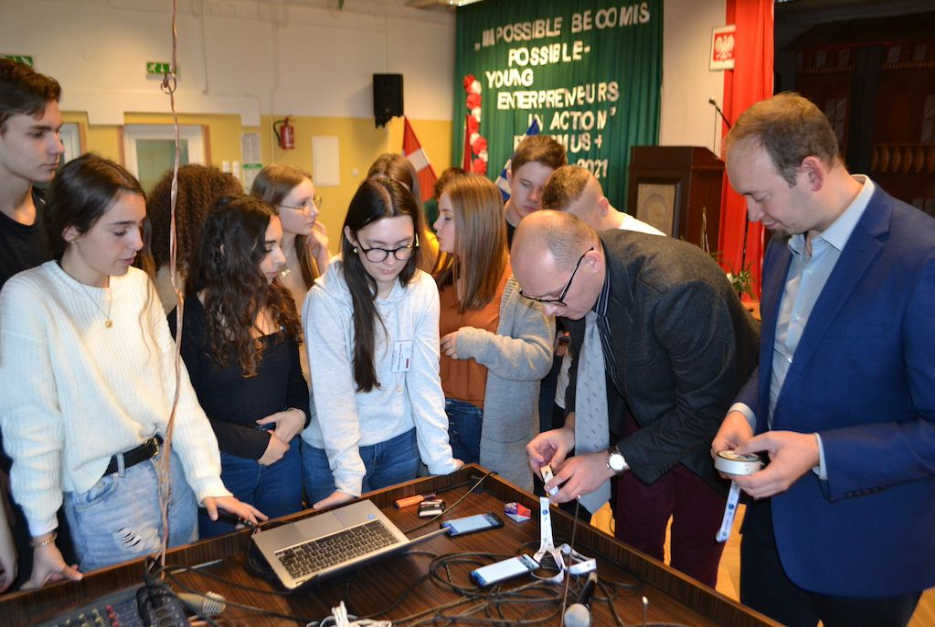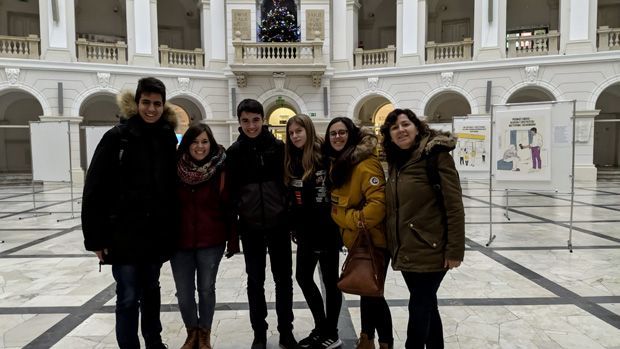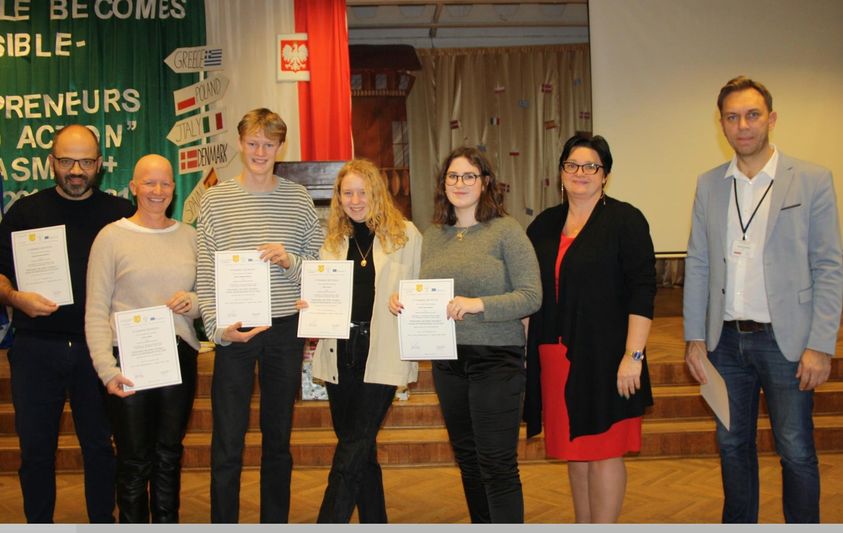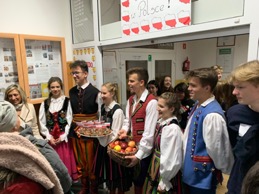Articles, Dissemination and Follow-up Activities
- Detalls
- Escrit per denmark
- Categoria: Articles, Dissemination and Follow-up Activities
- Vist: 3109
- Detalls
- Escrit per Possible
- Categoria: Articles, Dissemination and Follow-up Activities
- Vist: 3021
A piece of news in ARA multimedia (Spain)


- Detalls
- Escrit per Possible
- Categoria: Articles, Dissemination and Follow-up Activities
- Vist: 3054
This is what we learnt about SMOG
Smog is a mixture of smoke, gases, and chemicals, especially in cities, that makes the atmosphere difficult to breathe and harmful for health. The main causes of smog are using coal as a fuel, vehicular and industrial emissions and natural causes. The ways to solve the problem are purchase renewable energy, reducing and managing vehicular and industrial emissions, increasing energy efficiency and conserving energy, use of environmentally friendly consumer products and smog detection and monitoring systems. The countries participating in this project are ordered from highest to lowest pollution as follows: Poland, Greece, Italy, Denmark and Spain.
We did different workshops during our stay such as: lecture on smog and measuring air quality at Warsaw University of Technology, learning to use DUST AIR device with Mateusz Dulewski from Syngeos, working out ideas on how to prevent SMOG and assembling a home-made device used to measure the level of smog and installing devices, joining the global smog measuring system with Emilia Piotrowska and Wojciech Sanko from Warsaw smog Alarm.
- By Emma Blanes

- Detalls
- Escrit per Possible
- Categoria: Articles, Dissemination and Follow-up Activities
- Vist: 3121
ERASMUS+ KA229
OPINION AND RECOMMENDATION

I am Gerard Dueñas, from Spain and I am going to share my group opinion about this Erasmus experience and why we recommend these type of projects.
First of all, I want to talk about the trip project; improve our knowledge about the smog and how to fight it. We worked together in different workshops and we learnt as a group. It was satisfying to listen and talk with people from all over Europe.
During the week, we shared information and culture with the other students, we visited different iconic places from Poland and we enjoyed learning different cultures from students like us. We had been in the historical center of Warsaw and we tasted traditional dishes there. Also, we visited different museums and expositions about the Polish history and science projects. Talking about our accommodation, we stayed in our hosts houses, meeting their families and living like them during a week. It was really funny to meet their friends and their city, Grójec and to adapt our timetables to theirs.
I think, this project changed our minds because we lived with different cultures and we learned many things about the environment care and the daily lives of other students from other countries.
GERARD DUEÑAS 4th ESO
- Detalls
- Escrit per Possible
- Categoria: Articles, Dissemination and Follow-up Activities
- Vist: 3963
My experience with Erasmus+ program
In December of 2019, long before covid-19 was a thing and we still traveled. Me, two of my classmates and two teachers from my school went to Poland with Erasmus.
The program was partly cultural exchange and an innovative work week about smog and how we can take responsibility. There were 3-4 students from each country and around 70 students from Poland.
The first day; It was a big mix of different cultures, nervous looks and a lot of names. Some people were good at English other struggled to find the words, but we all managed to figure out where to eat lunch, what time it was and how old we were.
The Polish students welcomed us with open arms and a lot of cake. Each class had baked a lot of national and local cakes. The area the school was located in is famous for its apples so of course there was apple-pie. Oda my host lived in a 2-bedroom apartment with her mom, dad and little brother, and I got to say her mom’s apple-pie was the best I have ever tasted.
- Detalls
- Escrit per George Hlapanis
- Categoria: Articles, Dissemination and Follow-up Activities
- Vist: 5910
MEETING IN POLAND (1-7/12/2019) ON SMOG
First Day (2nd December)
The first day of the meeting was spent with tours of the hosting school, so the guests could get familiar with the place they were going to work on for the week of the visit. Apart from the tour, each country presented the work they had done on the presentation of each school and country, so that everyone would introduce themselves to the rest of the team. In parallel, some students that had prepared on the topic presented their work on the issue that the visit was based on: smog. Later in the afternoon, we visited the local Town Council, where we talked with the politicians responsible for the environment and the Mayor himself. This visit helped us understand the dimensions of the problem of smog in Poland and the exact measures taken against it.
Second Day (3rd December)
The second day we visited the historic capital of Poland: Warsaw. Specifically, we toured mainly the old part of the town, seeing the most important landmarks, learning the rich history of the city, guided by a professional. Later, we visited Copernicus Science Centre, where we had plenty of time to gaze at the miraculous science and chemical experiments displayed there. To close the day, we watched the history of space exploration in the Planetarium of the Centre.
Third Day (4th December)
Οn Wednesday we visited Warsaw again, but this time we saw different places. The first visit was to the University of Technology, where we met with a professor and a student of the university and took lectures on the air quality of Warsaw and Krakow, on why Poland is facing a problem, what are the factors behind it, and also some possible solutions to it. After the lecture, we toured the main part of the city and stopped at the Uprising Museum, where we learned the modern history of the country, like the catastrophic consequences of World War II and how Poland managed to get back on its feet.
Fourth Day (5th December)
On Thursday, we had some workshops in mixed groups, mainly about smog. Specifically, we learned how to use an anti-dust device by two professionals. We also assembled a home-made device which measures the level of smog in the area. Finally, in our last workshop we installed some devices in order to join the global smog measuring system. In the evening, after a long day with our hard morning work, we were rewarded by a spectacular talent night which was organized by the Polish teachers and students. Many talents appeared and it was a pleasure to have the ability to watch them.
Fifth Day (6th December)
On the last day, Friday, we made a workshop about the reflections of the week. We created a lot of posters about smog and we went to a street column, we put glue all over it and sticked them on it in order to give a message to the people and to make them realise how serious the situation of smog is.









